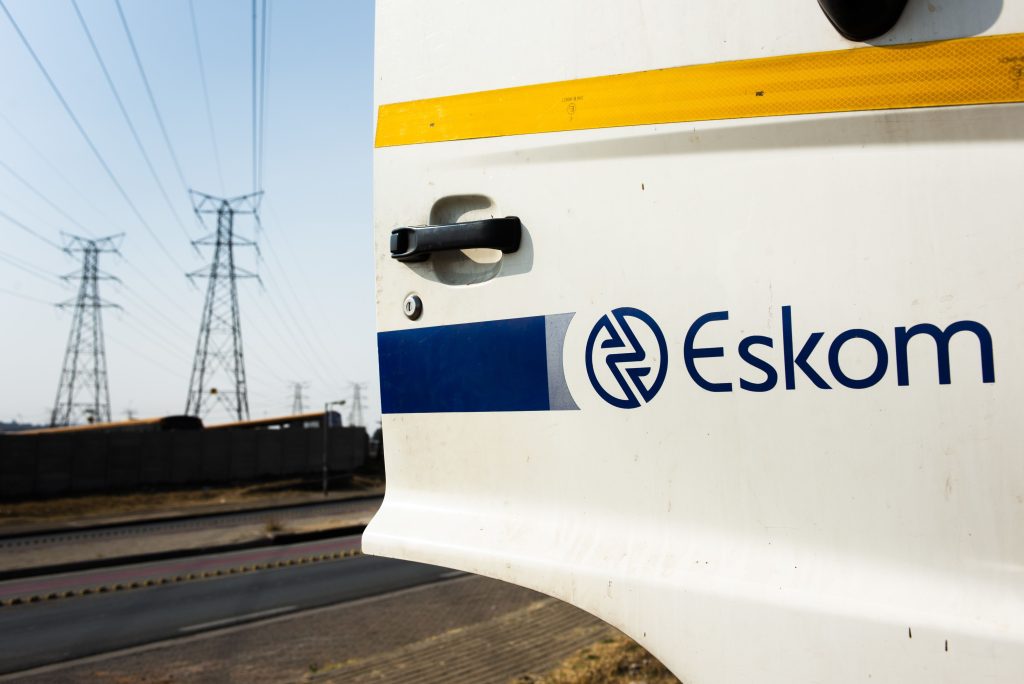You can also listen to this podcast on iono.fm here.
This interview was originally aired on RSG Geldsake (in English).
RYK VAN NIEKERK: Jeffrey Quvane is on the line now. He is responsible for oversight of Energy and Telecommunications at National Treasury. He is an official there, so I cannot discuss politics with him or about André de Ruyter [former Eskom CEO]. Jeffrey, thank you so much for joining me.
Dawie Roodt and I just discussed some of the conditions the National Treasury attached to the debt arrangement you announced with Eskom yesterday during the budget – and it is very strict.
Read: Eskom to get a massive R254bn in debt relief
It calls for an independent investigation into the operations of Eskom, and that Eskom must implement these recommendations.
What is the background of this investigation?
JEFFREY QUVANE: Thanks Ryk, and good evening to your listeners. The minister of finance, if you would recall in last year’s Medium-Term Budget Policy Statement, announced that the government would be taking a portion of between one-and-a-third [and] two-thirds of Eskom’s debt.
In developing that solution for Eskom’s debt, the minister announced that National Treasury will also be undertaking this independent review.
The idea behind the independent review is that the minister wants to understand, at the power station level, what the root causes contributing to this decline in the operational performance of Eskom are, which has led us to actually experience this severe load shedding.
So this is the rationale that the minister actually thought of.
The idea is that once the review is completed, the outcome of that review will then find its way into the conditions that Eskom will have to implement. This will be done via incorporating all of those conditions into Eskom’s corporate plan, which is the guiding document that they use to actually run their business.
RYK VAN NIEKERK: Can you tell us more about the independent consortium? Who is conducting this review? Who is involved there, and what are their powers?
JEFFREY QUVANE: The Independent Review has been appointed by the National Treasury.
They’re officially starting work on February 27, which is next week Monday. The consortium is led by a German company comprising four companies; largely all of them German.
The name of the company that is leading the consortium is vgbe energy [originally Vereinigung der Großkesselbesitzer or Association of Large Boiler Owners, founded in 1920 by representatives from companies in related industries], and other partners in the consortium are KWS Energy, RWE Technology International, and Steag Energy as well as Dornier Power & Heat.
The advantage of this consortium is that they have worked in Eskom’s power stations, in various Eskom power stations, so they understand the environment.
And this contract that we have with them is fairly short because it’s only four months. They have to conclude their work between June and July.
We will then be able to take stock, once they’ve concluded this independent review. They have a fair understanding of Eskom’s power station fleet. I must also indicate the focus is only on the coal fleet. So they’ll be looking at all the coal power stations of Eskom.
RYK VAN NIEKERK: Who appointed this consortium? Was it National Treasury, the Eskom board, the Department of Public Enterprises? Who appointed this commission or this consortium?
JEFFREY QUVANE: It is National Treasury, as part of this debt-relief package that has been announced by the minister.
RYK VAN NIEKERK: And the outcomes must be implemented. Of course, we don’t know what those outcomes must be, but another condition is that following the implementation, or probably part of that process, Eskom must get the private sector to come and run those stations through a concession model, pretty much what we’ve seen with Transnet recently. Has that been discussed with the other government departments, because there seems to be significant resistance to such private sector involvement?
JEFFREY QUVANE: Ryk, I must start by explaining that this proposal, this debt-relief package, has gone through the cabinet.
Cabinet has seen the conditions. But at the same time we have discussed the conditions with the Department of Public Enterprises and the Department of Mineral [Resources] and Energy. However, I need to contextualise the concession, how we’ve seen it, but that will be augmented by the outcome of the review.
This is not in our view a privatisation of Eskom’s power stations, but this will then, in our view, allow the original equipment manufacturers to come in and offer the skill that they have in order to actually turn around and improve the energy availability factor, which is critical in ensuring that we deal with load shedding.
At this stage we haven’t worked out the finer details of how the concession will be undertaken, but it is not a sale of Eskom’s power stations to the private sector.
RYK VAN NIEKERK: Who will determine the terms of that concession? Would it be Eskom, National Treasury, or another department?
JEFFREY QUVANE: No, it will be the outcome of the review and this consortium. They will then give us some ideas and we’ll take it as [it is] and then consult with other departments. But this process – all of it – and this exercise is led by the National Treasury.
RYK VAN NIEKERK: Jeffrey, thank you so much for your time tonight. That was Jeffrey Quvane from National Treasury, and he is responsible for oversight of Energy and Telecommunications.

